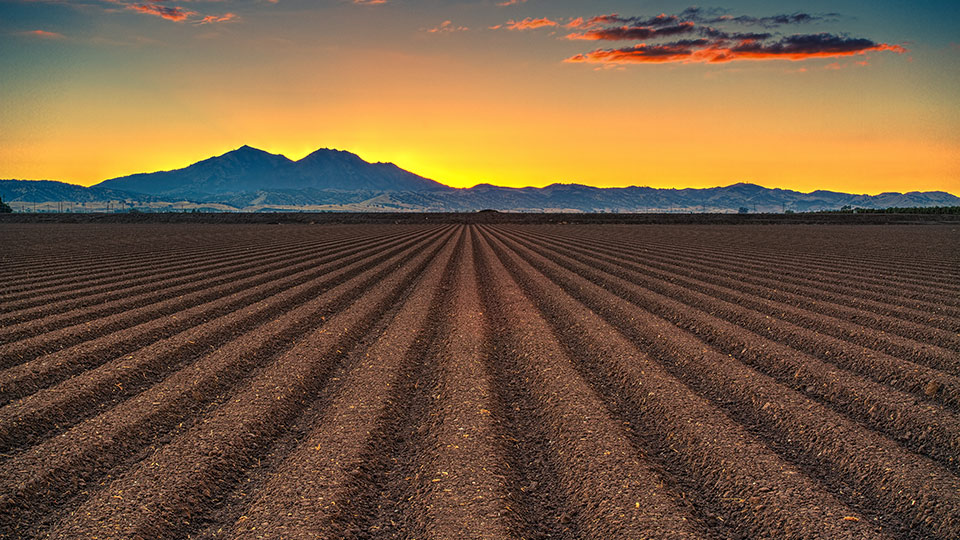 As any veteran grower will tell you, it’s difficult to cultivate happy plants without healthy soil. That’s because soil provides both the environment and nourishment needed to spur plant growth.
As any veteran grower will tell you, it’s difficult to cultivate happy plants without healthy soil. That’s because soil provides both the environment and nourishment needed to spur plant growth.
So while your end goal may be a garden full of vibrant plants, your starting point should be ensuring your soil has good “tilth.”
Make good tilth a priority
Tilth encompasses different aspects of soil health and refers broadly its suitability for cultivation. If your soil drains well, does not develop a hard crust, absorbs water readily and does not make dirt clods, you’re off to a great start. With good tilth, your soil allows easy tillage, offers good seedbed quality, promotes seedling emergence and supports deep root penetration.
One requirement for good tilth is having well-aggregated soil, which occurs when soil particles are joined together into tiny clusters. These clusters, or aggregates, form in soil when individual soil particles are brought together through wetting and drying or freezing and thawing, as well as by plant growth and earthworm activity.
In the case of earthworm-created aggregates, they are stable once they come out of the worm. On the other hand, aggregates formed by physical forces become stabilized through microbial processes that involve decomposition of organic matter and related by-products. These by-products cement the soil particles together, forming water-stable aggregates (i.e. soil clusters that are strong enough to hold together when wet).
Having well-aggregated soil is important for several reasons:
- It is easier for water to enter the soil and it boosts the soil’s water-holding capacity.
- It improves aeration, which means that air can flow in and out of the soil.
- It allows roots, earthworms and other soil life to pass more easily through the soil.
- It prevents glazing or crusting of the soil surface.
These are all important soil characteristics that help plants thrive.
Improve your soil with pumice
Good soil structure is a key requirement for good tilth, and one way to improve soil structure is with pumice – a type of volcanic igneous rock formed from molten or partially molten material. Its highly porous structure gives it excellent water and air exchange properties, making pumice a great soil conditioner.
The root systems of plants require a continual supply of oxygen, the escape of the carbon dioxide that is released by the roots, water retention in the soil and availability of nutrients for plant growth. Adding pumice to your soil helps meet all of these important requirements.
There are many other advantages to using pumice in your soil, including:
- The porous nature of pumice allows it to hold vital nutrients in microscopic surface pores, which helps regulate fertilizer feedings.
- It contains trace amounts of vital minerals, such as phosphorus, potassium, calcium, magnesium, sodium, copper, iron and manganese.
- It can loosen the density of heavy clay-type garden soils, increasing root growth and making hand tillage easier.
- It can reduce watering requirements by as much as one-third.
- It creates improved conditions for soil microbial activity.
- It enhances the environment for worm activity.
In addition to using pumice as a soil conditioner, you can also use it as a bedding additive for worm composting to help control moisture, aid in air exchange, prevent consolidation and encourage worm activity. When added to compost bins or piles, pumice can help to maintain breathability and moisture while loosening materials as they settle.
Get help from earthworms
Another requirement for good tilth is flourishing soil biology, and this is where earthworms can play a key role. Earthworm castings – the “poop” produced by worms – are rich in beneficial bacteria, microbes and micronutrients. These microscopic elements stimulate plant growth by ensuring your soil has abundant organic matter.
Why is this important? Because organic matter increases the soil’s ability to hold water, builds soil structure, improves aeration, reduces soil compaction and helps roots grow deeper – all important requirements for growing healthy plants. With no chemical ingredients, castings are ideal for organic growing, whether indoors or outdoors. And since they are natural, castings are safe to use around children and pets.
Start your journey to healthy soil
If you dream of a garden full of happy plants, you need to ensure you have healthy soil with good tilth. The good news it that this is within your control.
By taking active steps such as adding pumice and earthworm castings to your soil, you can create the right conditions for your plants to thrive.